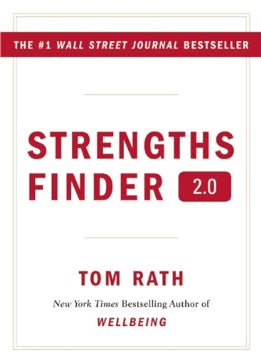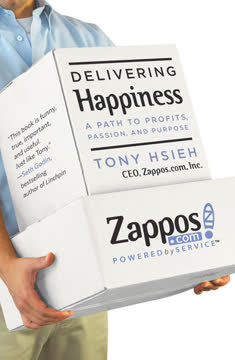重点摘要
1. 在需要之前建立关系
“真正的社交货币不是贪婪,而是慷慨。”
主动建立关系。 成功的社交不是收集名片或仅在需要时才建立联系,而是长期培养真诚的关系。通过在需要帮助之前投资于他人,你可以建立起强大的信任和善意基础。
长期视角。 以长期心态看待社交。专注于如何帮助他人并为他们的生活增值。这种方法不仅感觉更真实,还增加了在需要时他人愿意帮助你的可能性。记住,最强大的网络是建立在互惠互利基础上的。
2. 创建多样化的联系网络
“你的网络应该既广且深。”
超越舒适区。 不要将你的网络局限于与你行业相关或背景相似的人。多样化的网络可以让你接触到不同的观点、机会和资源。寻找跨领域、不同年龄组和文化的联系。
质量与数量。 虽然拥有庞大的网络很重要,但要专注于建立有意义的关系。平衡以下几种联系:
- 弱联系:可以引导你进入新圈子的熟人
- 强联系:提供支持和合作的密切联系
- 连接者:自然将不同群体联系在一起的人
3. 慷慨并为他人增值
“你帮助的人越多,你得到的帮助也越多,你帮助他人的能力也越强。”
培养给予的心态。 以“我能如何帮助?”而不是“这对我有什么好处?”的心态进行社交。通过持续为他人增值,你成为一个值得信赖的资源,并增加你的社会资本。
增值方式:
- 分享知识和专业技能
- 在有益的情况下介绍彼此认识
- 在困难时期提供支持
- 庆祝他人的成功
- 在适当的时候提供建设性的反馈
记住,慷慨会建立善意,往往会带来意想不到的机会和互惠支持。
4. 让你的互动有意义且令人难忘
“人们记住的是故事。人类大脑记住的是故事,而不是事实或要点。”
掌握讲故事的艺术。 在结识新朋友或重新联系时,分享能展示你经历、价值观和目标的有趣故事。个人轶事让你更容易被人记住。
积极倾听。 通过以下方式表现出对他人的真诚兴趣:
- 提问有深度的问题
- 记住之前对话中的细节
- 跟进共享的信息
- 提供相关的见解或资源
通过让每次互动都重要,你会留下持久的积极印象,增强你的网络联系。
5. 明智地利用社交媒体和技术
“社交媒体消除了进入的障碍,让你几乎可以与任何人联系。”
战略性在线存在。 使用社交媒体平台来:
- 分享有价值的内容
- 与行业领袖互动
- 展示你的专业知识
- 关注你的网络动态
平衡线上和线下。 虽然技术提供了前所未有的社交机会,但不要忽视面对面的互动。将在线联系作为面对面会议的跳板,在那里可以建立更深的关系。
记住要保持与你个人品牌和社交目标一致的专业在线形象。
6. 掌握闲聊和跟进的艺术
“闲聊是我们进行的最重要的谈话。”
准备对话开场白。 在参加活动或会议之前,研究当前事件、行业趋势或共同兴趣,以促进有趣的对话。练习开放性问题,鼓励更深入的讨论。
有效的跟进:
- 在有意义的互动后发送个性化的感谢信
- 分享对话中提到的相关文章或资源
- 在专业社交网络上发送个性化信息
- 安排后续会议或电话继续讨论
一致且周到的跟进将短暂的相遇转化为持久的联系,并展示你对建立关系的承诺。
7. 在你的网络中平衡给予和请求
“你越具体地说明你的需求,人们就越容易帮助你。”
克服请求的犹豫。 许多人害怕请求帮助,但记住大多数人喜欢提供帮助。当你需要支持时,明确具体地说明你的请求。
互惠行动:
- 记录你如何帮助他人
- 准备在他人帮助你时回报
- 在请求帮助时,提及过去的互动或共同联系
- 对收到的任何帮助表示真诚的感谢
通过在给予和接受之间保持平衡,你可以创建一个基于互相支持和长期价值的网络。
8. 培养个人品牌和声誉
“你不能靠你打算做的事情建立声誉。”
定义你的独特价值。 确定你的优势、激情和你为网络带来的具体价值。发展一个清晰的个人品牌,传达你是谁以及你代表什么。
一致性是关键。 使你的行动、沟通和在线存在与你的个人品牌一致。以以下特点闻名:
- 可靠性:履行承诺
- 专业知识:不断发展和分享你的知识
- 诚信:在所有互动中保持高道德标准
- 真实性:在关系和沟通中保持真诚
一个强大的个人品牌让你更容易被人记住,并增加他人寻求你合作机会的可能性。
9. 主办和参加战略性社交聚会
“你必须愿意忍受短期的痛苦以获得长期的收益。”
成为连接者。 主办活动可以让你将人们聚集在一起,使你成为网络中的重要节点。考虑:
- 邀请多样化客人的晚宴
- 行业聚会或研讨会
- 虚拟圆桌讨论
- 与你的价值观一致的慈善活动
选择性参加活动。 选择与你的目标一致并提供结识相关联系机会的活动。参加之前:
- 研究与会者和演讲者
- 设定具体的社交目标
- 准备谈话要点和问题
通过战略性地策划和参与社交聚会,你可以最大化你的社交努力并创建有价值的联系。
10. 克服社交恐惧和借口
“选择不是在成功和失败之间,而是在选择冒险追求伟大或不冒险而确定平庸之间。”
重新框架社交焦虑。 不要将社交视为一项艰巨的任务,而是将其视为学习、成长和潜在帮助他人的机会。记住,许多人在社交场合中也感到紧张。
克服恐惧的实际步骤:
- 从小做起:在低压情况下练习
- 设定可实现的目标:每次活动目标是建立一两个有意义的联系
- 专注于他人:将注意力从自己的不适转移到如何帮助他人
- 接受拒绝:将“拒绝”视为学习经验和未来“接受”的垫脚石
- 不断改进:反思你的互动并相应调整你的方法
通过面对你的社交恐惧,你为个人和职业成长打开了无数机会。
最后更新日期:
FAQ
What's Never Eat Alone about?
- Focus on Relationships: Never Eat Alone by Keith Ferrazzi emphasizes the importance of building and nurturing relationships for personal and professional success. It argues that success is not just about individual talent but about the connections you make and how you leverage them.
- Networking Philosophy: The book introduces a philosophy of networking based on generosity, authenticity, and mutual benefit. Ferrazzi believes that by helping others, you create a network that will support you in return.
- Practical Strategies: It provides practical strategies and actionable advice for effective networking, including how to approach cold calls, manage gatekeepers, and follow up after meetings.
Why should I read Never Eat Alone?
- Transformative Networking Approach: The book offers a transformative approach to networking that can change how you view relationships in your career. It teaches that networking is not just about collecting contacts but about forming genuine connections.
- Real-Life Examples: Ferrazzi shares real-life stories and examples that illustrate the principles he advocates, making the advice relatable and actionable.
- Timeless Principles: The principles outlined are timeless and applicable across various fields and industries, making it a valuable read for anyone looking to enhance their professional relationships.
What are the key takeaways of Never Eat Alone?
- Generosity is Key: One of the main takeaways is that “the key to success in one word: generosity.” This principle underlines the importance of giving without expecting anything in return.
- Build Before You Need: Ferrazzi emphasizes the importance of building your network before you need it, ensuring you have a support system in place when challenges arise.
- Follow Up or Fail: The book stresses the importance of following up after meetings, as “follow-up is the key to success in any field.”
What specific networking strategies does Never Eat Alone recommend?
- Relationship Action Plan: Ferrazzi introduces the concept of a Relationship Action Plan (RAP), which helps you identify your goals and the people who can help you achieve them.
- Warming Cold Calls: The book advises against cold calling and instead suggests warming up your calls by finding mutual connections or references.
- Managing Gatekeepers: Ferrazzi emphasizes treating gatekeepers as allies rather than obstacles, which can open doors to decision-makers.
What does Ferrazzi mean by "Never Eat Alone"?
- Networking Over Meals: The phrase encapsulates the idea that meals are prime opportunities for networking. Ferrazzi encourages inviting colleagues, mentors, and potential connections to share meals.
- Building Relationships: Eating together creates a relaxed environment conducive to building relationships, leading to more meaningful interactions than formal meetings.
- Creating Opportunities: By consistently inviting others to join you for meals, you create opportunities to connect and collaborate.
What is the concept of "social arbitrage" in Never Eat Alone?
- Creating Connections: Social arbitrage involves identifying opportunities to connect people who can benefit from knowing each other, leading to mutually beneficial relationships.
- Proactive Networking: Ferrazzi advises taking the initiative to offer assistance, enhancing your reputation as a connector.
- Building Indispensability: By becoming a resource for others, you position yourself as an essential part of their network, leading to increased opportunities.
What does "pinging" mean in the context of Never Eat Alone?
- Regular Check-Ins: Pinging refers to the practice of staying in touch with your network through casual greetings or updates, keeping relationships alive and relevant.
- Frequency Matters: Ferrazzi suggests maintaining relationships requires regular communication, ideally at least once a month.
- Personal Touch: The effectiveness of pinging increases when it’s personalized, such as remembering birthdays or significant events.
How does Never Eat Alone address the concept of social capital?
- Definition of Social Capital: Ferrazzi defines social capital as “the information, expertise, trust, and total value that exist in the relationships you have.”
- Building Social Capital: The book emphasizes that building social capital requires active engagement and investment in relationships.
- Impact on Success: Ferrazzi argues that social capital is a key determinant of success, stating, “Your network is your destiny.”
What role does vulnerability play in networking according to Never Eat Alone?
- Authenticity Builds Trust: Ferrazzi argues that being vulnerable and open about your challenges can foster deeper connections.
- Encourages Reciprocity: When you show vulnerability, it invites others to do the same, creating a safe space for honest communication.
- Humanizes Connections: Vulnerability makes you relatable and approachable, enhancing your networking efforts.
What are some common networking mistakes to avoid as highlighted in Never Eat Alone?
- Keeping Score: Ferrazzi warns against the mentality of keeping score in relationships, which can lead to transactional rather than genuine connections.
- Being a Networking Jerk: The book describes the “networking jerk” as someone who is overly aggressive and insincere in their networking efforts.
- Neglecting Follow-Up: Failing to follow up after meeting someone is a common mistake that can lead to lost opportunities.
How does Never Eat Alone suggest I find mentors?
- Identify Potential Mentors: Look for individuals who have achieved what you aspire to and who are willing to share their knowledge.
- Be Proactive: Reach out to potential mentors with specific questions or requests for advice, showing genuine interest in their work.
- Build a Relationship: Mentorship is a two-way street; be prepared to offer value in return, such as assistance on projects.
What are the best quotes from Never Eat Alone and what do they mean?
- “You can be more successful in two months by becoming really interested in other people’s success than you can in two years trying to get other people interested in your own success.”: This quote highlights the importance of focusing on others, which can lead to stronger relationships.
- “Real power comes from being indispensable.”: Ferrazzi emphasizes that true influence is gained by being a valuable resource to others.
- “The best sort of connecting occurs when you can bring together two people from entirely different worlds.”: This underscores the value of diversity in networking, as connecting people from different backgrounds can lead to innovative ideas.
评论
《永不独食》评价褒贬不一,有人称赞其社交建议,也有人批评其自我推销的语气。正面评价者欣赏书中关于建立关系和扩展社交圈的实用建议。批评者认为这本书有精英主义倾向且内容重复。许多人觉得费拉齐的个人轶事过多,尽管有些人认为这些轶事是有价值的例子。书中强调真诚的连接和先给予后接受的理念引起了读者的共鸣。总体而言,尽管存在缺陷,这本书对于那些希望提高社交技能的人来说仍然是有用的。
Similar Books



![Zero to One, Start Now Get Perfect Later, Shoe Dog A Memoir by the Creator of Nike, [Hardcover] Crushing It 4 Books Collection Set Summary](https://images.sobrief.com/social/cover_zero-to-one-start-now-get-perfect-later-shoe-dog-a-memoir-by-the-creator-of-nike-hardcover-crushing-it-4-books-collection-set_360px_1747184952.jpg)










